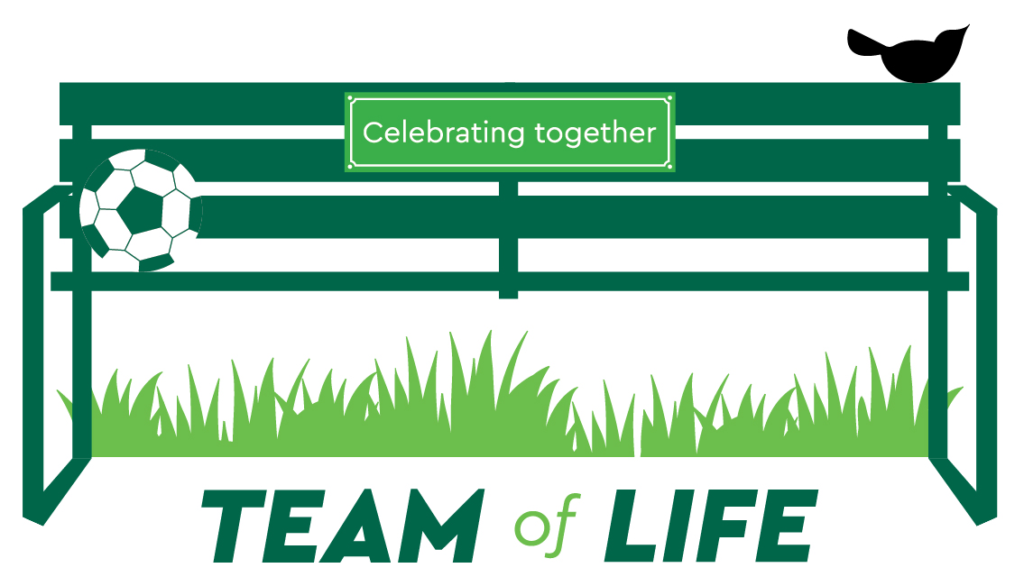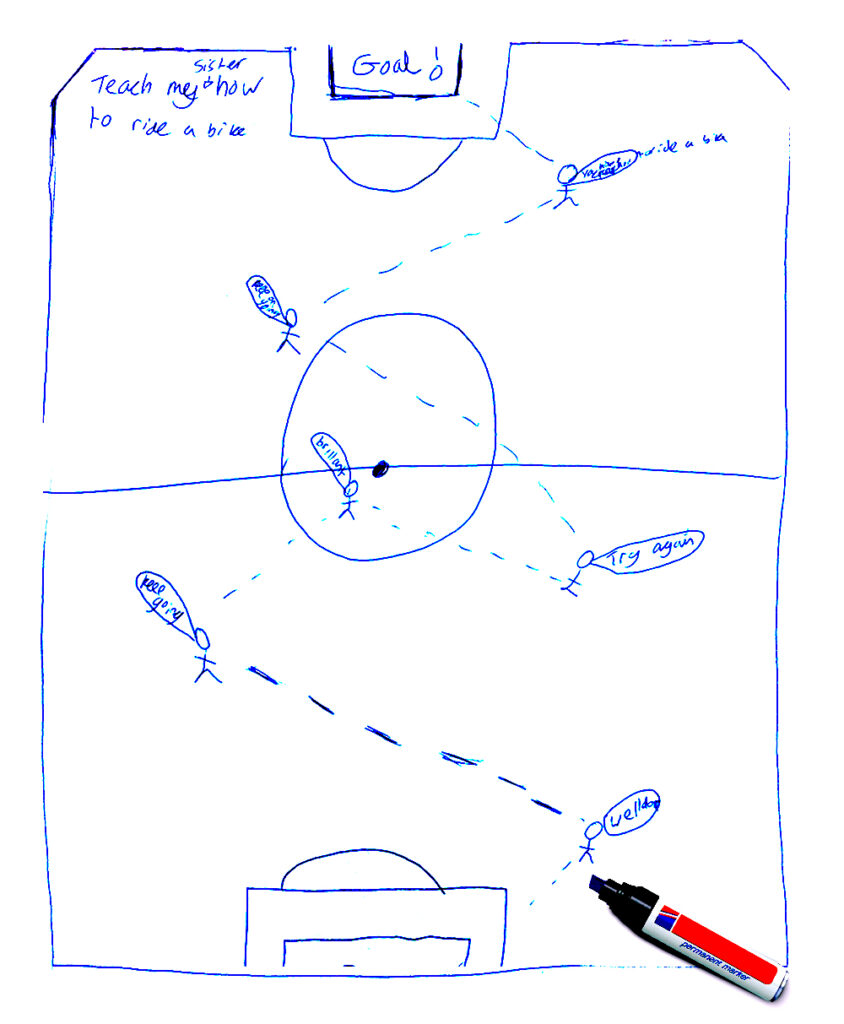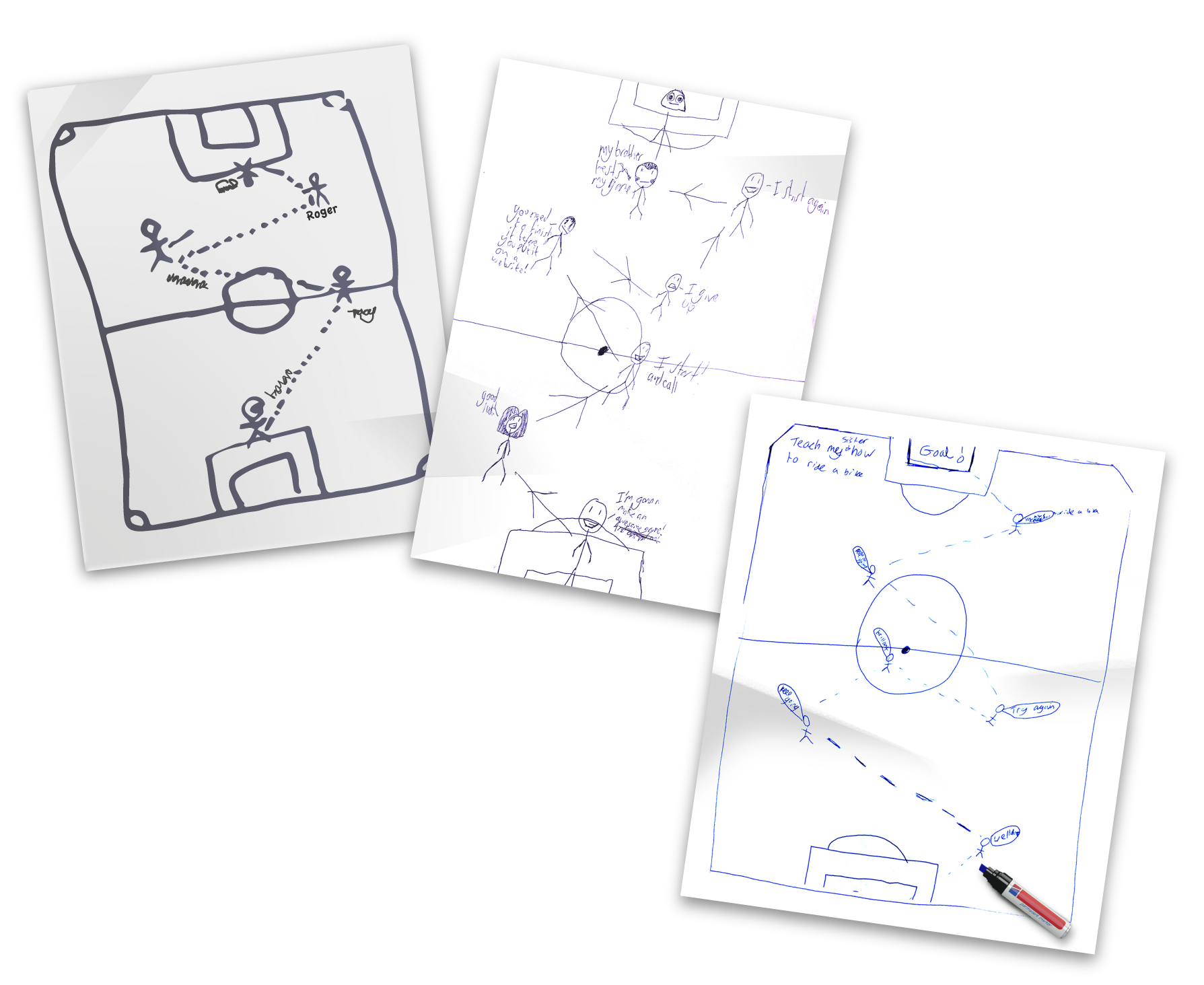
The TEAM approach to resilience
The Team of Life is a strength-based approach that comes from a type of counselling called narrative therapy. Using the language of sport, the Team of Life invites people to identify key support people or ‘team-mates’ in their lives. This builds resilience by enabling them to build a sense of social support and connected identity.
We train practitioners in this innovative approach, visit our Training Hub to find out about our Team of Life Facilitator Training.




The Team of Life methodology can be used with individuals or groups in schools or other settings working with children and young people. It was originally developed with former child soldiers in Uganda and has frequently been used with refugee groups. See the Dulwich Centre for more information.
As part of our work with schools and NHS Child & Adolescent Mental Health Services, we have developed resilience programmes for children aged 7 and upwards using sporting metaphors.
Key Features
- Children decide who they would like to think of as being in their ‘team of life’ from among their family, friends and other people who are important to them.
- Recognising the skills in their teams helps them to build confidence.
- Drawing how they worked together with their team to achieve a goal is an innovative way of telling stories of achievement and hope.
- Children are reminded that celebrating goals with a team is much more fun than on your own!
- Being part of a team makes it easier to think about how to tackle problems together
Beneficiaries
Children and young people who have experienced:
- Losses, trauma or hardship
- Low level mental health problems
- Concerns in relation to transition to secondary school
- Difficulties with friendships
- Problems related to self-esteem
“Great, easy to follow resources, step by step.” Teaching Assistant
“Really well-designed, professional and accessible” Primary Mental Health Worker
“Excellent resource pack” Faculty Assistant
“Helpful resources, very appealing” Behaviour Manager

Goal Maps
An example of one of the narrative activities in the programme are Goal Maps. Goal Maps are a really important part of the programme as they help children and young people to share the story of how they worked together with their team to ‘score’ an important goal in their life.
“The goal maps, it kinda gave me an idea of other ways to reach my goals and people I could use ‘cause I have many goals but normally I don’t ask people to help me out, I try and do it solo, but it doesn’t always work out, so it really made me think about other people I could ask for help if I need to achieve a goal.”
Charlies goal map tells the story of how Charlie made new friends with the help of their team . . .
Team of Life in Schools
A pragmatic randomised control trial led by University of Liverpool and involving 8 schools is currently being written up for publication. A paper published in Education and Child Psychology describes some of the initial research findings underpinning our Team of Life work in schools can be accessed here. The story of our work in schools is also described in an article published in Context magazine which can be found here.


Outcomes
A randomised control trial led by University of Liverpool showed the programme was more effective than usual pastoral care following transition to secondary schools. The research, involving schools in Wirral and Cheshire, showed that the Team of Life programme helped children to:
- feel less isolated
- be less socially withdrawn
- show more pro-social behaviour such as kindness and friendliness
Testimonials
What children have said about Team of Life
“It helps people to not get sad over
small things anymore and feel people are there for them.”
“It reminds you of who’s there for you, and like who can look after you when you’re down.”
“I started feeling more confidence just ‘cause people around me who I know would help, and that I would have a support from other places, such as home.”
“Yeah like treat people better and erm, like if I see someone who’s feeling down, like go and talk to them.”
What practitioners have said about Team of Life
“The Team of Life training provided by Riverbank Psychology was incredibly helpful to our team. The experiential learning enabled the team to fully embrace the Team of Life approach and we all hugely enjoyed the training whilst learning a great deal. The training provided the opportunity for the team to learn about each other, consider who is in our own ‘team of life’ and reflect on our values. The creative approach Vicky and Mariangels took to deliver the training ensured the team learnt not only how to deliver Team of Life but also understood the narrative principles that underpins the approach. I would highly recommend this training to anyone who is looking to run Team of Life.”
Dr Laura Tozer, Clinical Psychologist, Bedfordshire Mental Health Support Team
“The team of life training was very beneficial to the leaders involved in our Project. Not only did it raise awareness of the methodology behind team of life but it gave us as leaders the opportunity to participate in the activities that the young people would do in the programme. This gave us an insight into how to deliver the activities and why such activities were used. The training also was good fun and helped us as an organisation find out more about each other by participating in the activities. We look forward to using this approach with the young people we work with.”
Martin Connell, Project Manager, The Respect Project, Newry, Northern Ireland
“The Team of Life provides a common language that most students understand. This promotes a safe and inclusive environment, which breaks down any barriers to participation and communication… I consistently witness students experiencing an appreciation and understanding of the value of support networks and how this has a positive impact on their lives. This seems to be a key moment in the programme, which allows students to identify positive and supportive people in their life and reduce the sense of feeling isolated and alone. I have been particularly struck by the importance of stories, which comes from a narrative approach and how this can be used for children to tell their story, with a deeper understanding of how their experiences shape their attitude towards the future, finding key positive learning experiences from difficult circumstances. I have found that this not only enhances resilience, but also increases understanding and empathy of themselves and the world around them.”
Claire Owens, Director, Next Chapter CIC (Formerly Family Support and Well-Being Co-ordinator, The Mosslands School)
“I have been using the Team of Life with a group of eight primary school students, girls and boys, aged between 10 and 12 years old. Each of the students have been identified as having problems with anxiety, low self-esteem and low social skills. The program is half way through and is going really well. It is giving the students confidence in knowing that they are not alone. They have greater self-confidence in knowing that they have achieved so much in their past, the program has made them aware of past achievements. The ‘Team of Life’ has also given the students the opportunity to reflect on who is most important to them and why.”
Leigh Hill (Student Support Services Officer, Wodonga, North-East Victoria)
